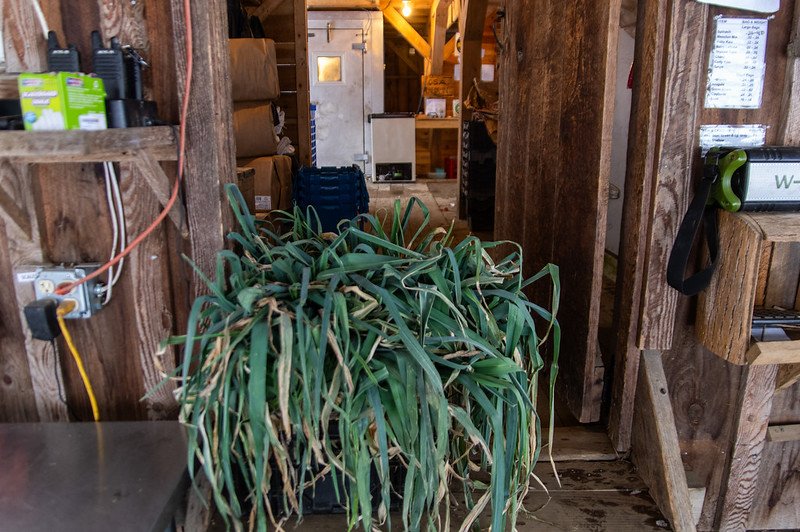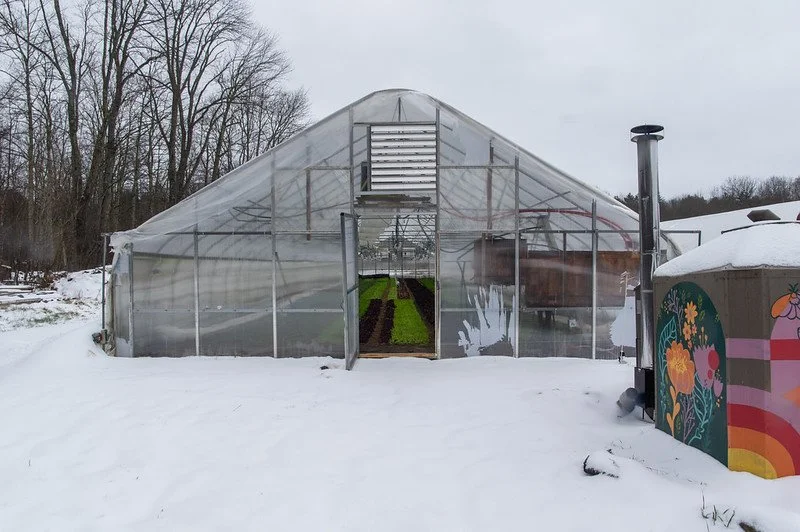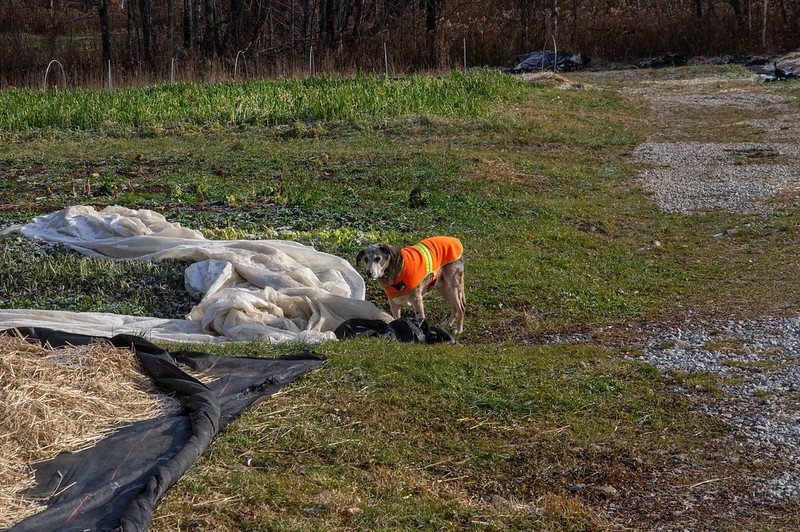6th Week of the Fall CSA season: Week of November 29th
what a fun view of the stars at night, photo by Adam Ford
CSA Balance Due
If you haven’t already paid, your balance is due this week. You can pay online through your account (with a card or e-check ACH payment), mail a check to Evening Song Farm 48 Nice Road, Cuttingsville VT 05738, leave a check or cash in the CSA cash box at the barn, send money with Venmo @eveningsongcsa, or use EBT. It’s very cool to pay in smaller chunks, just let us know what your payment plan is. Unless you email us with your payment plan, or set up a payment plan on the Farmigo dashboard, please pay for the entire season now. It saves us valuable farm work time to have payments at the beginning of the season or on a planned payment schedule. Thank you!
If you are able to pay with a check, e-check, cash, Venmo, or EBT, it saves us a considerable amount of money compared to card transactions. We know that it’s necessary for some folks to use a card, so don’t feel bad if you have to use that option. Thanks!
another night time shot…. how incredibly lucky to live in a place where you can see the stars at night, photo by Adam Ford
this looks like a manger scene to me… I put the heat lamp on on the 11 degree night because it was the first night in a new home for our new goat, Noel, photo by Adam Ford
This Week’s Availability
This week we will have yellow beets, red beets, yellow potatoes, red potatoes, baby kale, claytonia*, Tokyo Bekana**, baby lettuce, baby bok choi, green curly kale bunches, lacinato kale bunches, garlic, shallots, leeks, carrots, baby carrots, Painted Mountain grain corn, brussels sprouts, watermelon radish, daikon radish, spinach, mini red lettuce heads, mini green lettuce heads, green cabbage, rutabaga, yellow onions, and Gilfeather turnip.
*Is claytonia new to you? It’s a tender, smooth, baby green, also known as “miner’s lettuce.” It’s used in salads, on sandwhiches, wraps, and our kids just eat it by the handful as a snack. It has a long, crisp stem that is delicious. I personally dislike when greens are stemmy… except claytonia. I really enjoy the textural addition of claytonia stems.
**Is Tokyo Bekana new to you? If you have had the mesclun mix, it’s the tender light green leaf in that mix. It’s a mild salad green that some folks enjoy outside the mesclun mix. Use it like lettuce in a salad or or sandwiches.
Ordering closes at noon on Tuesdays for Wednesday bags, and at midnight on Wednesdays for Friday bags.
You do not need to fill out the form if you plan to come to the barn on Wednesdays or Thursdays to pick out your items yourself.
baby lettuce, photo by Adam Ford
green lettuce head, photo by Adam Ford
Farm News
Last Friday I spent the day at the annual Farm to Plate conference, which was a day of connecting with many other folks in the farming and food world. I appreciate the dynamic conversations that get to happen in those types of spaces, in rooms full of people throughout the food spectrum. I spoke on a panel for a presentation on climate messaging, which really felt worth my time sneaking away from the farm for. One theme that came up in the breakout discussions in that workshop is how folks throughout the food world, at many levels, meeting on any different topics around food, is the theme that the way we manage our food system on a cultural level, is not working. While it may be easy to interpret that theme through a pessimistic lens (“it’s broken”), I heard it in a very optimistic way (“there is overlapping opportunity that we can all benefit from.”) From non-profits, service providers, farmers, government agencies, are all in agreement that big systems must change for food systems to better serve the earth and all its eaters. And that’s pretty cool to hear that shared desire for change from many different angles.
One of the workshops I listened in to was hosted by organizers from Migrant Justice. They hosted a panel of immigrant farmworker leaders within the Vermont dairy industry, who spoke about the issues that immigrant workers face, and the status of their Milk With Dignity initiative. (If you are unfamiliar with Milk with Dignity, their website describes it best: “The Milk with Dignity Program brings together farmworkers, farmers, buyers and consumers to secure dignified working conditions in dairy supply chains. The Program enlists the resources of food industry leaders, such as Ben & Jerry’s, that have made legally-binding commitments to protect workers’ human rights. Those participating buyers provide a premium to participating farms that agree to work towards compliance with the labor standards in the Milk with Dignity Code of Conduct. The premium supports farms’ compliance with the Code and rewards farms that comply.”)
Despite feeling like I had a good enough understanding of the issues that sector of the agricultural workforce faces, it was still hard and to learn about specific experiences workers face, right here, in Vermont, in this county. That’s not to throw dairy farms under the bus… First of all, every single farm is different, and one poor work environment doesn’t represent every environment. Also, I worked on dairy operations before I chose to become a vegetable farmer. I saw how relentlessly difficult dairy farming is for farm owners. I can’t imagine how to make the numbers pencil out to keep a dairy farm afloat economically. And also, because everyone is a human being deserving safe working conditions and a living wage, I appreciate the work that the Milk with Dignity project is doing for dairy farming employees. And as the organizers and immigrant workers pointed out, the project provides protections for any dairy farm worker, whether they are immigrants or Vermonters born here in Vermont. Supporting better work conditions for anyone improves the work conditions for everyone. The program also helps farm owners access funding for farm improvements. Even though any change can be hard, it seems like a win-win once farms join.
Six years ago, Ben and Jerry’s adopted the Milk With Dignity program, to ensure that all the dairy they sourced was from farms who participated in the program. Currently Milk With Dignity is in their fourth year of pressuring Hannaford to adopt the program as well. Getting Hannaford on board would dramatically improve the working conditions for so many dairy workers throughout New England. If you have any interest in learning about supporting the movement to get Hannaford to adopt the Milk With Dignity pledge, that information is here. There are so many ways to nudge the food system in the direction we want it to head, and I feel grateful for the opportunity to connect with different aspects of our food shed to get it there.
In terms what is going on at this particular farm this week, we finally finished getting all the outdoor storage crops into the root cellar for winter storage. This week we will focus on finishing all the weeding in the high tunnels and continue to set up the tunnel beds that we can with some of the no-till methods we are adopting in there.
Have a great week,
-ESF Team: Ryan, Kara, Cindy, Galen, Katie, K2, Taylor, Vanessa, and Tabita (and Sky and Soraya)
3 layers of heavy duty row cover keep these greens safe from the coldest temperatures, photo by Adam Ford
bins of leeks ready to be cleaned, photo by Adam Ford
Cindy (and Ryan) finished the new endwall, photo by Adam Ford
onions and shallots on display, photo by Adam Ford
shriveling, unharvested mystery squash in the kids’ garden, apparently not even tasty enough for wildlife, photo by Adam Ford
we love having the overhang over the ramp now, photo by Adam Ford
but they are heavy and often damp and tough to move around, photo by Adam Ford
and one lonely leek left behind, photo by Adam Ford
looks like winter around here…. barn paintings keep it bright, photo by Adam Ford
Vane harvesting kale, photo by Adam Ford
old frozen outdoor bed of mesclun mix that was done being harvested, it’s amazing how hardy this stuff is even without row cover, photo by Adam Ford
Echo somewhat resents me for making him wear his orange vest even when he’s just hunting rodents in our fields, photo by Adam Ford
to move all the material for our no- and low-till zones, photo by Adam Ford


















